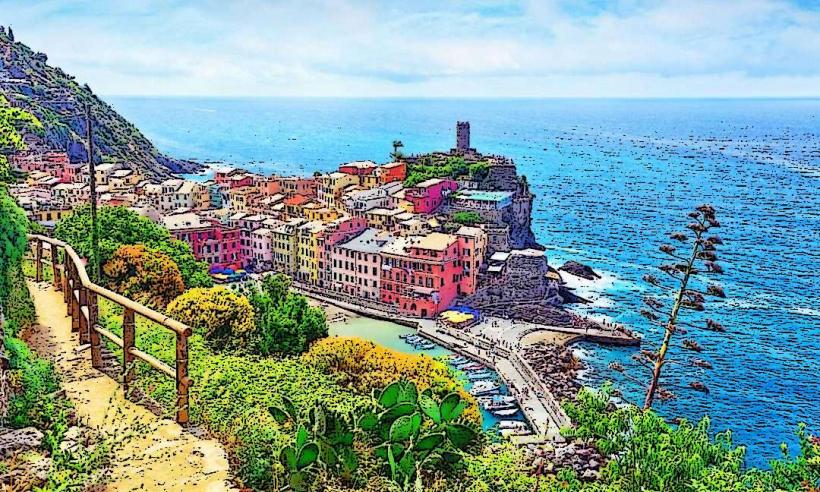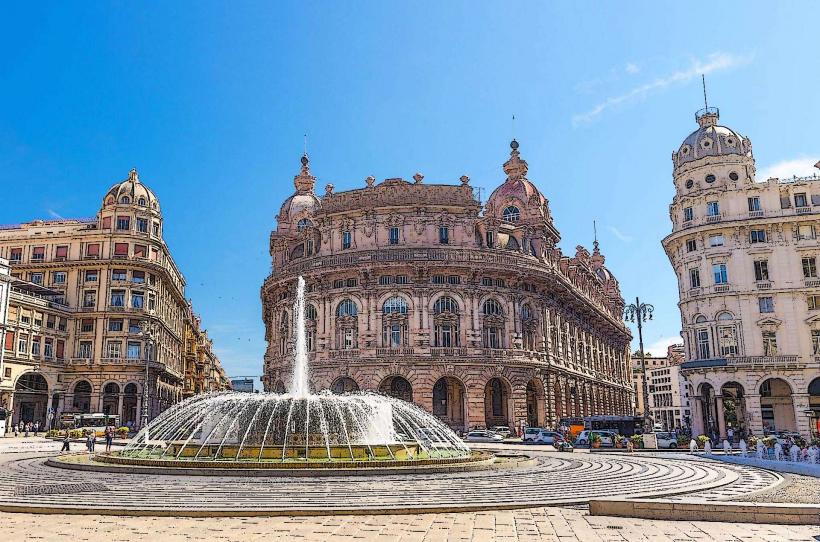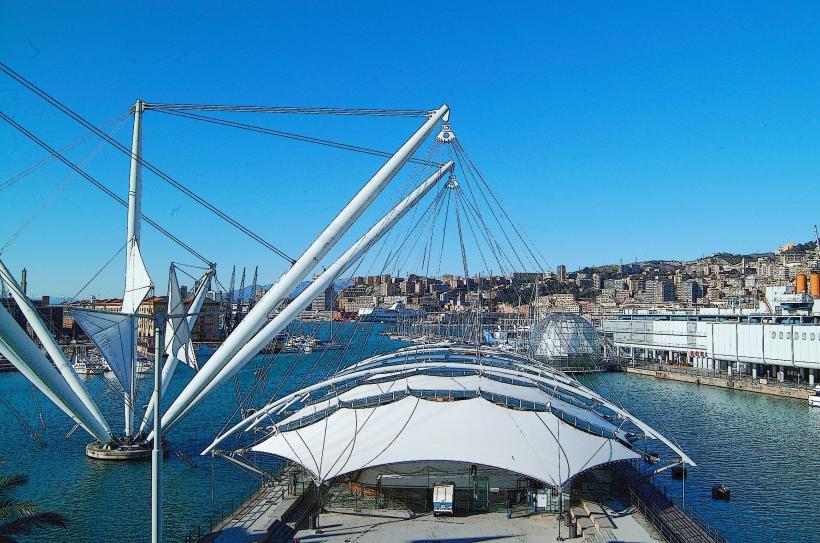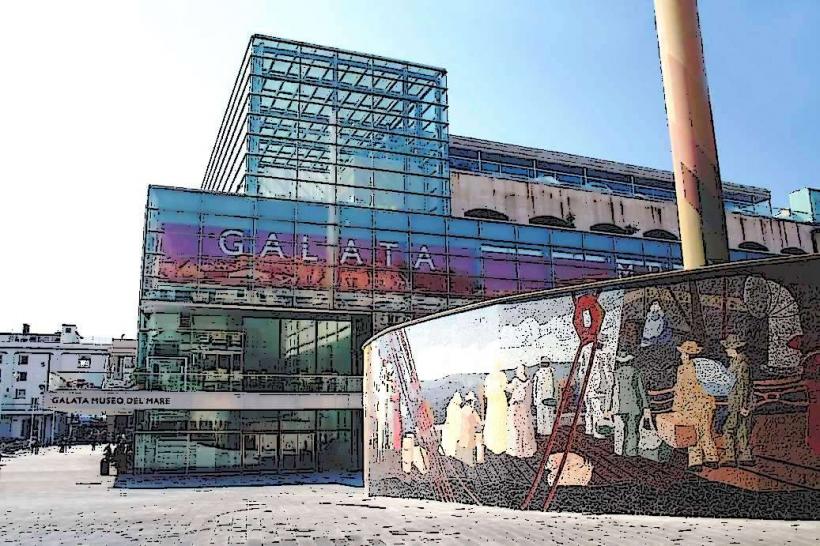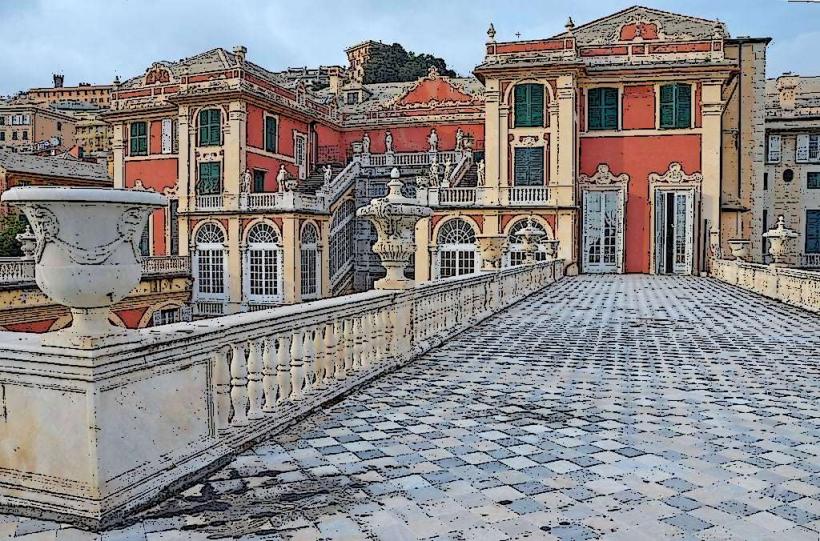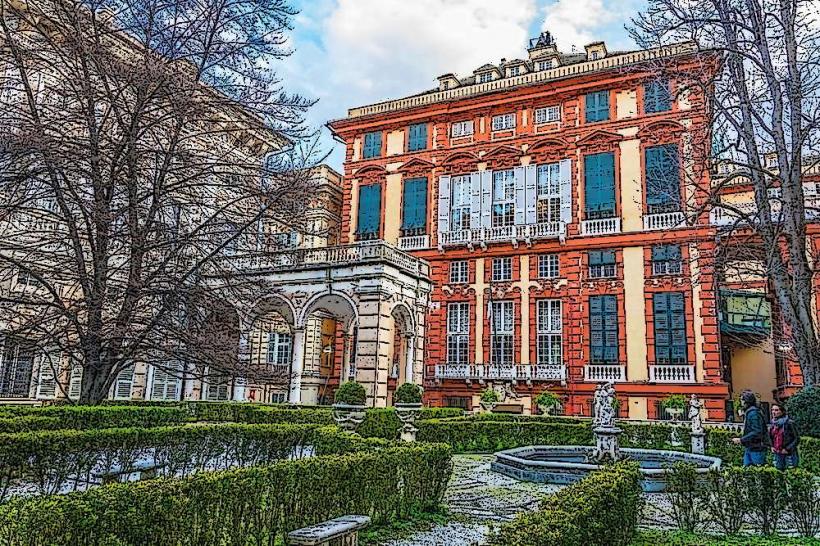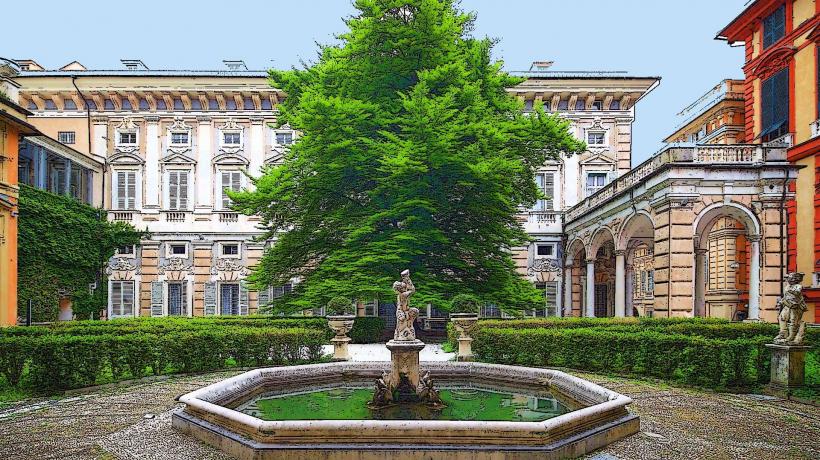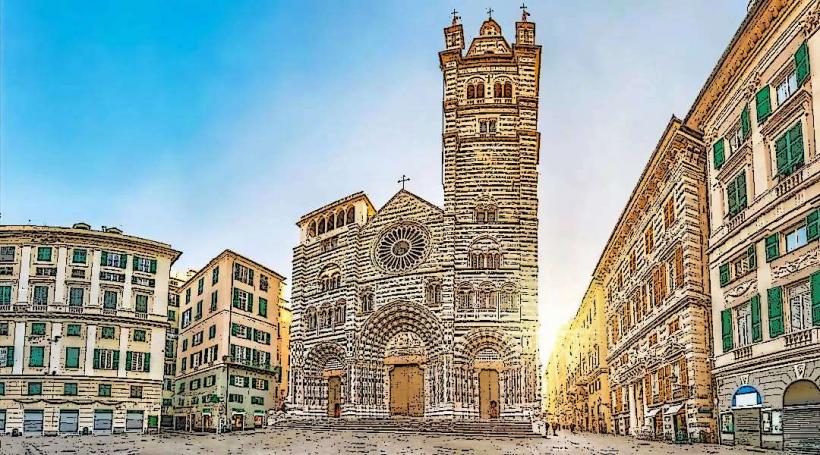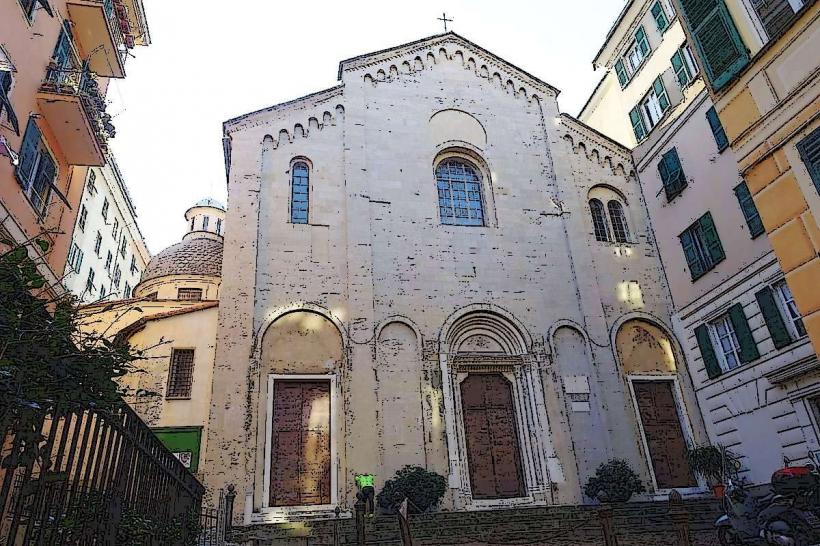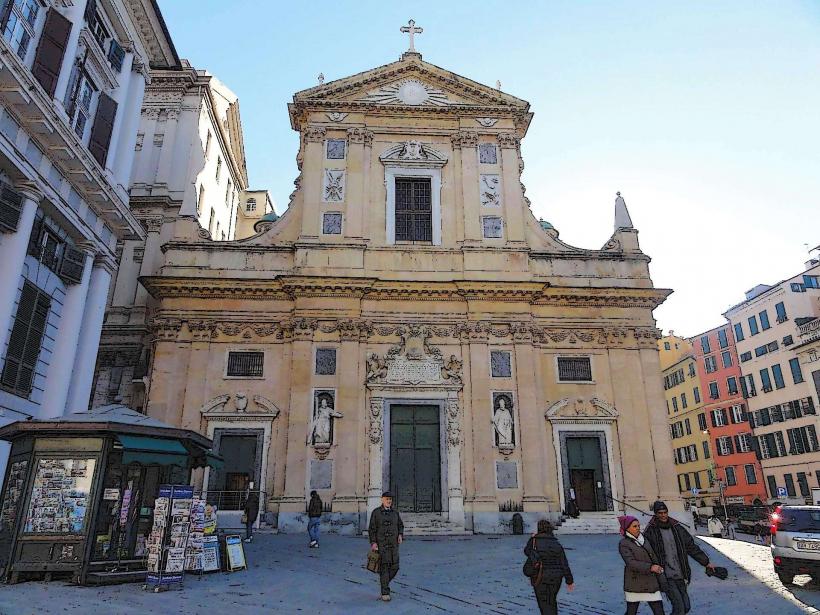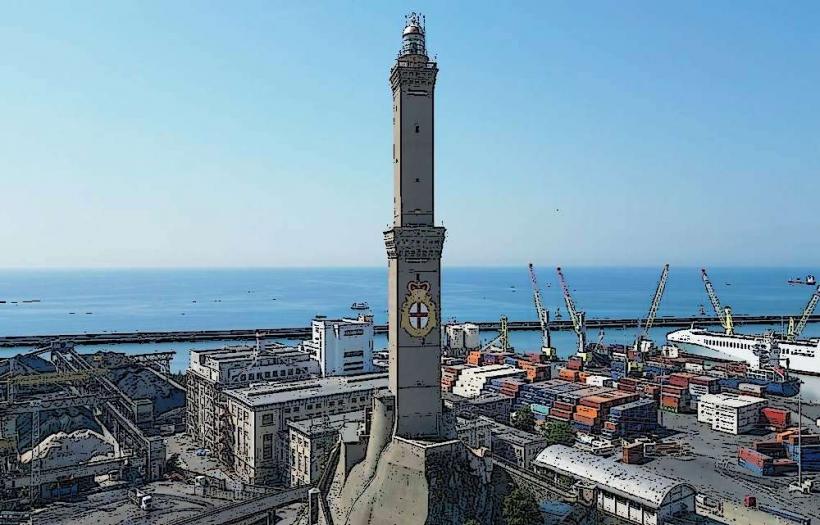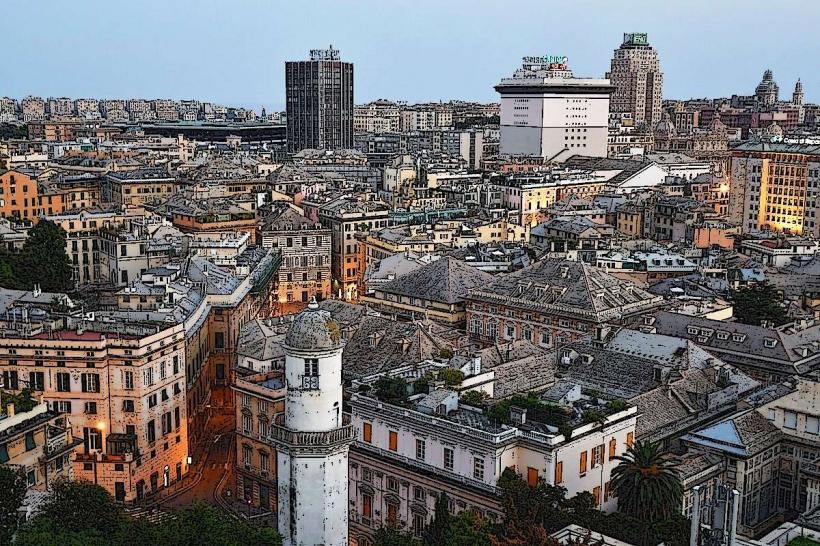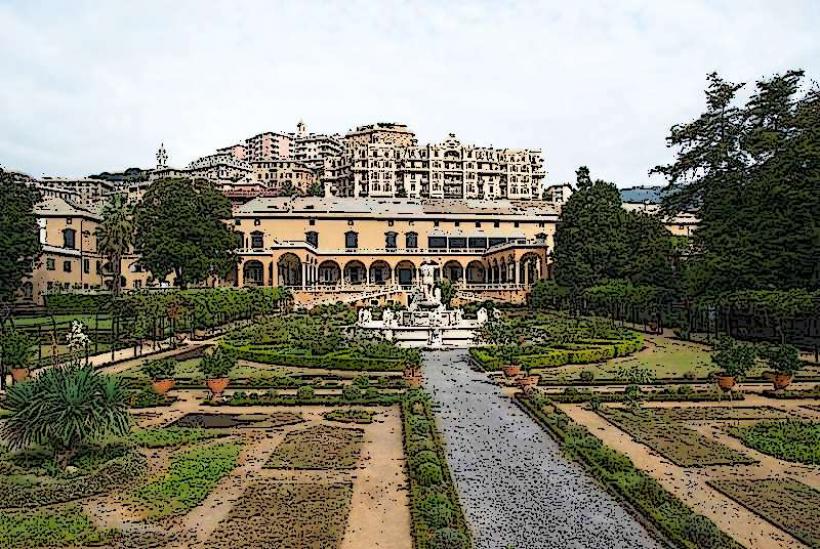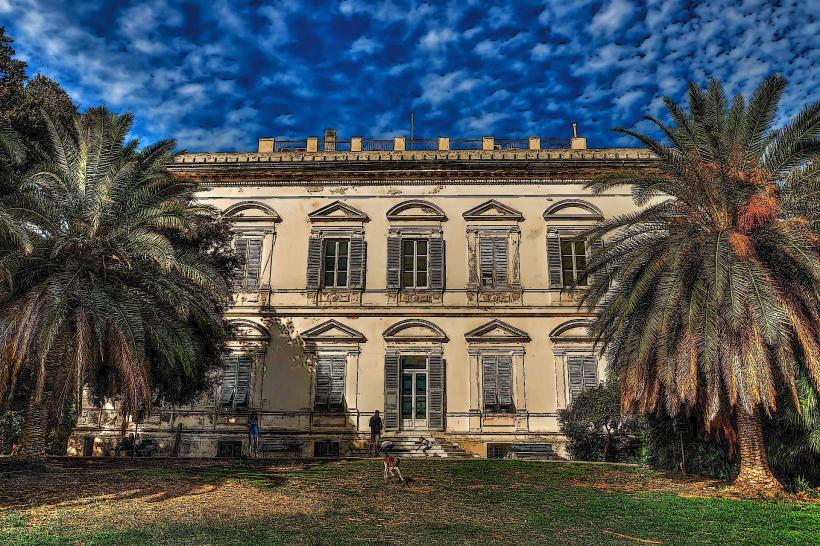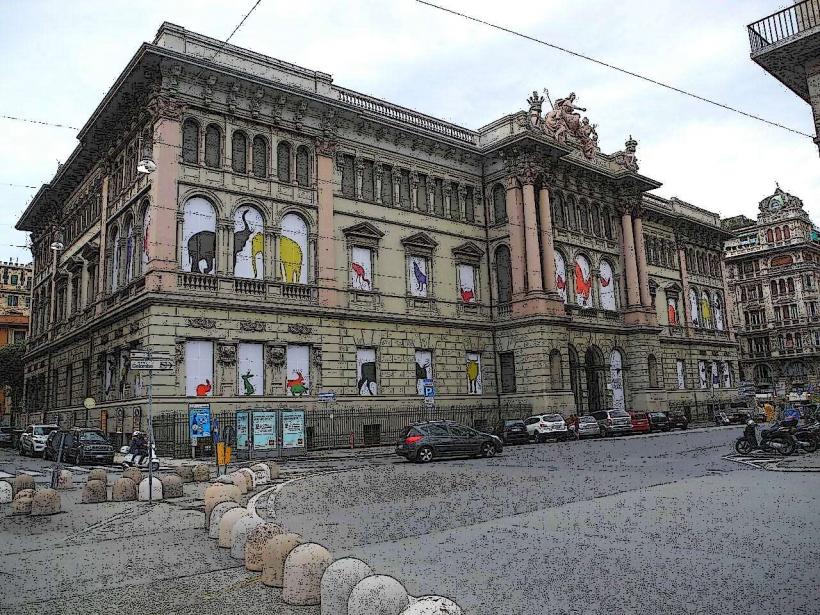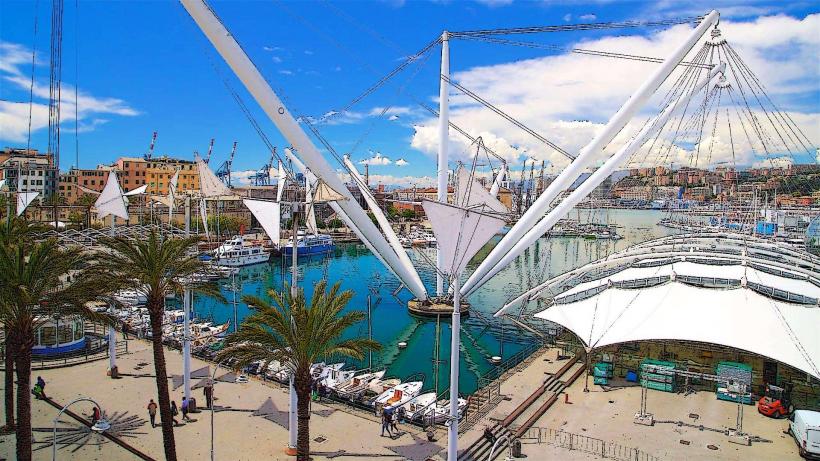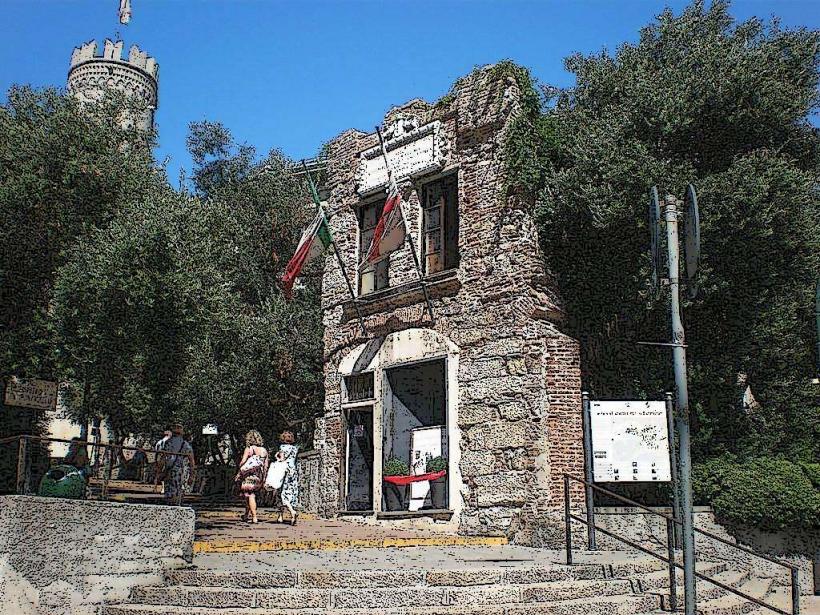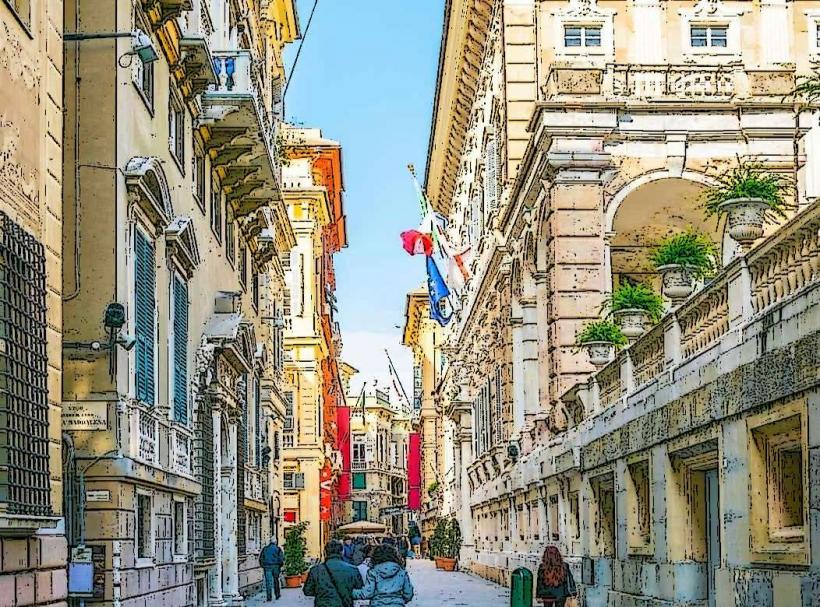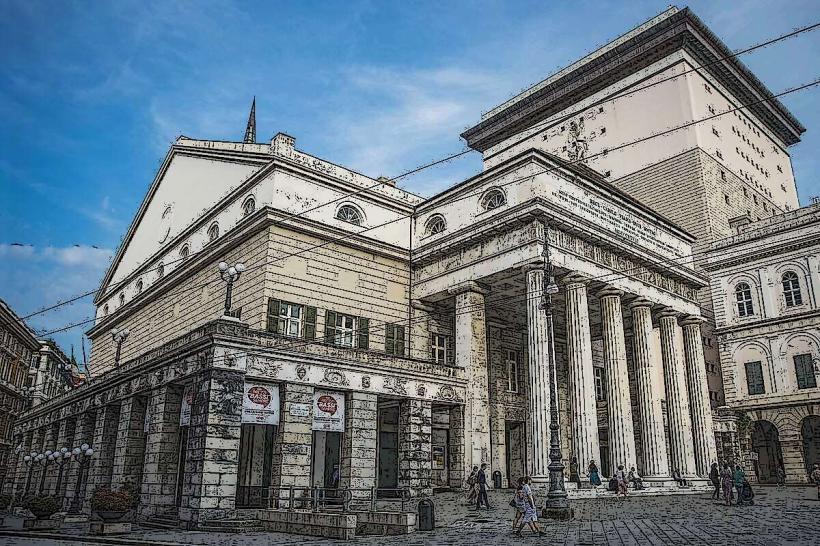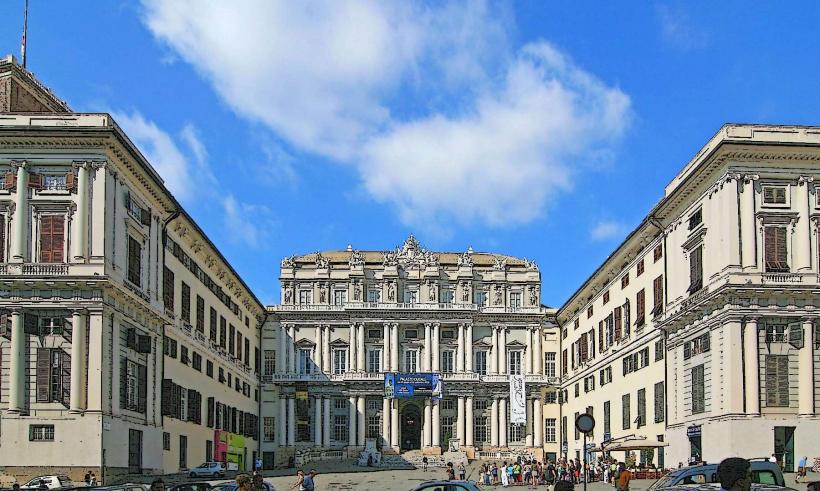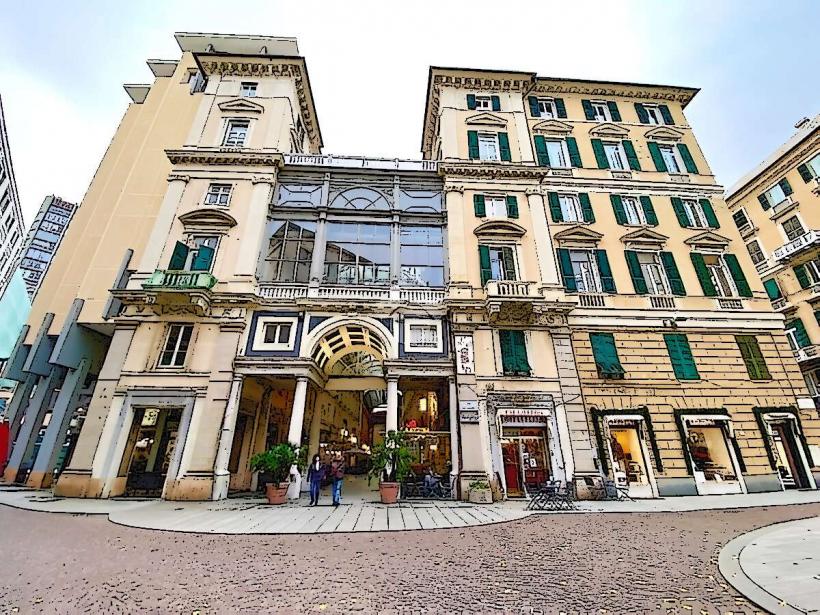Information
Landmark: Chiesa di San MatteoCity: Genoa
Country: Italy
Continent: Europe
Chiesa di San Matteo, Genoa, Italy, Europe
Chiesa di San Matteo (Church of Saint Matthew) is a beautiful Gothic-style church located in the historic center of Genoa, Italy. It is known for its rich history, architectural significance, and its connection to one of Genoa’s most influential aristocratic families, the Doria family.
Key Features and Highlights:
Historical Background:
- Chiesa di San Matteo was founded in 1125 as a Benedictine monastery, though it was later restructured and expanded in the 13th century. The church is dedicated to Saint Matthew, the patron saint of the Doria family, who were the prominent Genoese noble family with significant influence over the region.
- The church became a family chapel for the Doria family, which contributed to its wealth and decoration, especially in the Renaissance period. Over the centuries, it has undergone various renovations and restorations, preserving its historical and religious significance.
Architectural Style:
- The church is built in a Gothic style with elements of Romanesque and Renaissance architecture, creating a visually appealing mixture of different historical periods.
- The façade of San Matteo is one of its most striking features, with its black-and-white striped marble pattern, which is typical of many Genoese churches. The striped marble was used extensively in Genoa’s medieval and Renaissance architecture and gives the church a distinctive look.
- The facade is adorned with a series of Gothic arches and a beautiful rose window, which adds a sense of grandeur and intricacy to the church's exterior.
Interior and Decoration:
- Inside, the church is richly decorated with frescoes, sculptures, and altarpieces that reflect the artistic styles of different periods.
- The altarpiece in the church is a 16th-century masterpiece, with scenes from the life of Saint Matthew and the Adoration of the Magi. The church also contains works of art created by local artists as well as some pieces brought in by the Doria family.
- The interior’s wooden ceiling is beautifully painted with scenes from the Bible, showcasing the church’s role as both a place of worship and a symbol of the Doria family's wealth and patronage of the arts.
- The chapels inside the church are dedicated to various saints and feature ornate altars and statues.
Connection to the Doria Family:
- The Doria family played a significant role in the history of Genoa, and their influence is reflected in the church's decorations and historical importance. Several members of the Doria family are buried in the church, making it a family mausoleum.
- The church’s association with the Doria family is further emphasized by the presence of coats of arms and family symbols throughout the church, including on the chapels and tombs.
- The Doria family also commissioned much of the artwork and architectural modifications inside the church, cementing their legacy in the religious and cultural life of Genoa.
Artistic and Religious Importance:
- Chiesa di San Matteo is not only important for its religious significance but also for its artistic value. The church has been the site of various liturgical services, and its rich artistic heritage has made it a museum of sorts for those interested in religious and Genoese history.
- The church’s collection of paintings, frescoes, and sculptures offers a fascinating look at the evolution of art in Genoa, especially during the Renaissance and Baroque periods.
Location and Accessibility:
- The Chiesa di San Matteo is located in the Piazza San Matteo in Genoa, a historic square surrounded by other important buildings. It’s within walking distance of other notable landmarks in Genoa’s historic center, such as Piazza De Ferrari and Palazzo Ducale.
- The church is easily accessible and often visited by tourists exploring the rich cultural and historical fabric of Genoa’s old town.
Visiting Experience:
- Visitors to the Chiesa di San Matteo can admire the church's impressive architecture, rich decoration, and historical connections to the Doria family. It’s a place where visitors can both appreciate the beauty of Genoa’s medieval and Renaissance art and architecture and learn about the city’s religious and political history.
- The church is open to the public, and visitors can explore the various chapels, altars, and artistic works on display. As a relatively smaller and quieter site compared to other churches in Genoa, it offers a peaceful environment for reflection and admiration of the art.
In Summary:
Chiesa di San Matteo is one of Genoa’s most significant churches, both for its architectural beauty and its historical importance. With its Gothic design, striking marble facade, and connection to the Doria family, the church offers a rich insight into the religious, political, and artistic heritage of Genoa. Whether you’re interested in its artistic treasures, its fascinating history, or simply its peaceful atmosphere, San Matteo is an essential stop for anyone exploring Genoa’s historic heart.

